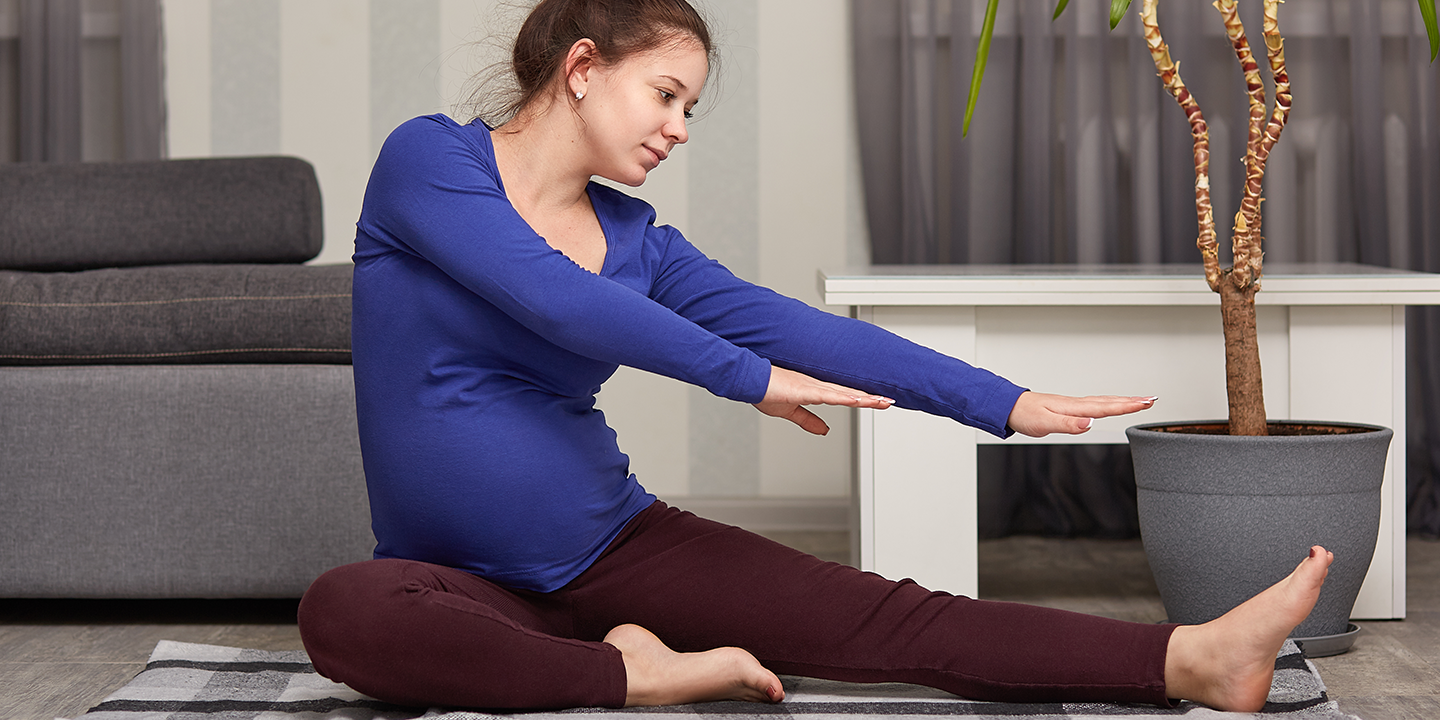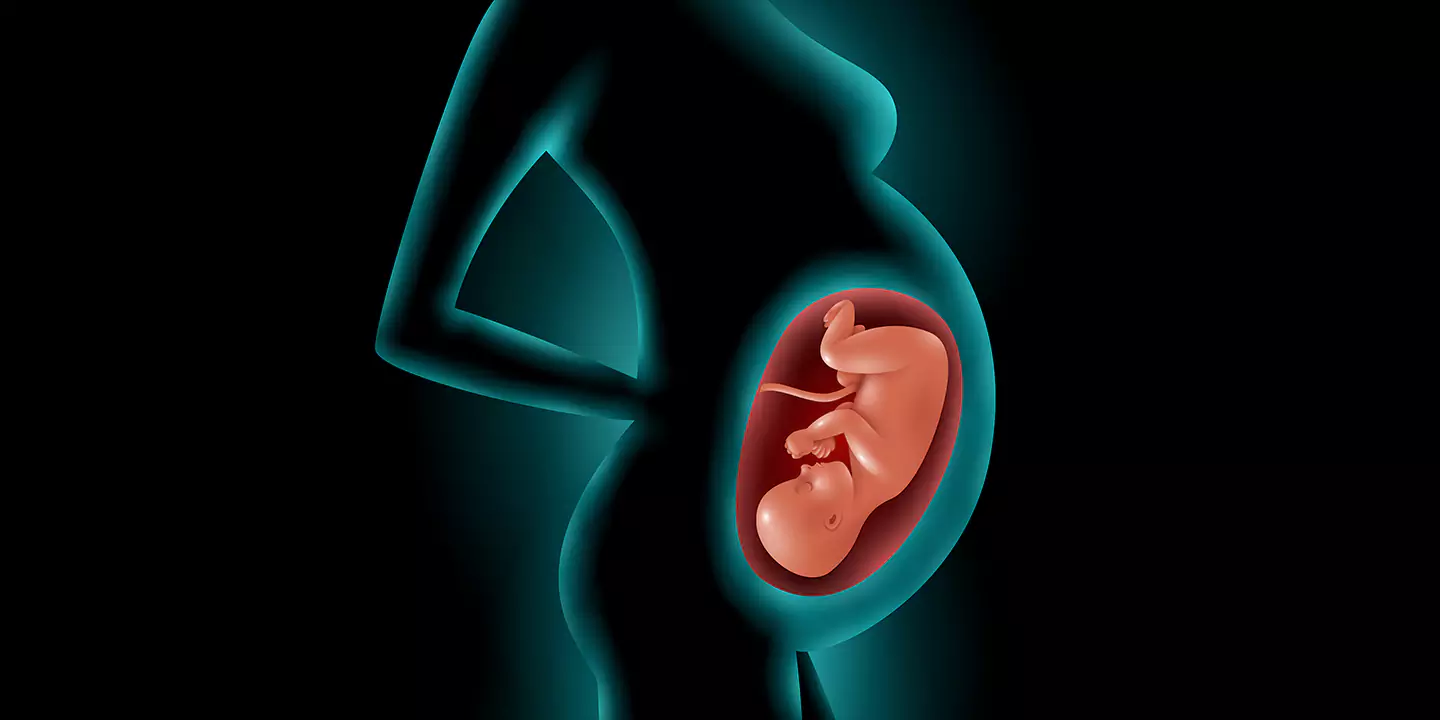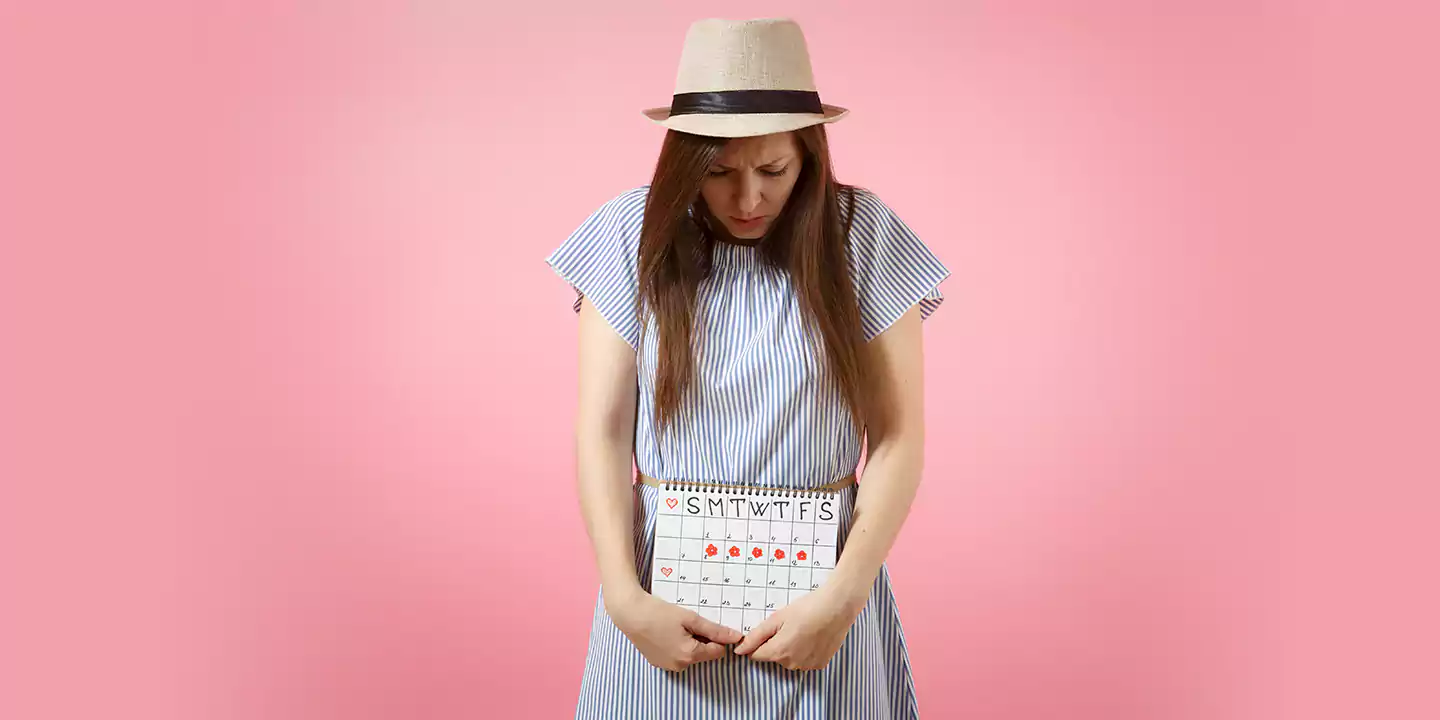
Pregnancy is a time when a wonder unfolds within your body and you get to witness it manifest before your own eyes. There are numerous additional subtle changes that aren’t immediately apparent as the baby develops, in addition to the mother’s organs moving about to make room for the kid. The fetus experiences amazing changes as it develops within the mother’s womb and may be more aware of what’s going on outside than you think.
As your baby grows inside the womb, she learns new things on this adventure every week, as the pregnancy progresses. We are aware that babies are born with a full range of senses, including hearing, touch, taste, smell, and sight. However, only a few weeks after conception, their senses actually begin to develop, laying the groundwork for their bond to you and comprehension of the world around them.
Scientists have uncovered a virtual sensory playground in which your kid is living thanks to a pregnancy scan such as ultrasound and other high-tech techniques that give a peep inside the womb. The fetus reacts to your voice and other sounds in the room, to light and dark shadows as you move around, totters as you change positions, and even tastes the foods you’ve just eaten that are sweet or spicy. According to specialists, these events trigger physiological adjustments in your fetus’ sensory systems that are essential for healthy brain development.
Related Blog : Do Babies Hiccup and Burp in the Womb During Pregnancy?
So If you are pregnant and wondering about what your baby may be doing inside you, then keep reading to learn what unborn babies do inside the mother’s womb:
In this Article
- 1 Weird Things Babies Do In The Womb
- 2 I Can Touch And Feel
- 3 Things Babies Do In The Womb
- 4 What do babies do in the womb all day
- 5 Do Babies Rest In The Womb
- 6 Shhhh…..! I Hear Something/ Baby in the womb
- 7 From Yummy… To Yuck!
- 8 I Spy With My Little Eyes
- 9 What’s That Smell…?
- 10 I Love You Too Mommy
- 11 Here are the more surprising things unborn babies usually do in the womb by weekly!
- 12 FAQ’s
Weird Things Babies Do In The Womb
Although babies in a mother’s womb don’t engage in a wide range of activities, their growth over the nine months is nevertheless amazing. Here are a few unusual and little-known behaviours infants accomplish while still in the womb:
- Hiccupping: Indeed, newborns hiccup while still in the womb. These minute spasms, which typically begin during the second trimester, might seem like rhythmic, repeated motions. It indicates that the diaphragm in your child is growing and expanding.
- Sucking Thumb: Babies frequently show a natural propensity towards sucking, and form this behaviour while still in the womb. They may suck their fingers or thumbs, which offers comfort and aids in the formation of the sucking reflexes needed for nursing.
- Digesting and Swallowing: It’s interesting to see how an unborn child digests and swallows. Babies start to take in and process amniotic fluid as a practice run for when they are born. Additionally, it aids in the digestive system’s growth.
- Practice Breathing: Babies practise breathing even though they cannot inhale air in the womb. Amniotic fluid, which they inhale and exhale, aids in the development and fortification of the baby’s lungs.
- Mother’s Heartbeat: Babies are able to hear noises from their environment, particularly their mother’s heartbeat. They may move or kick in time with the beat in response to noises.
- Exploring the Womb: When there is less room in the womb due to the baby’s growth, they may begin to explore by feeling their face, pulling on their umbilical cord, or even gripping their feet.
- Reacting to Emotions: According to research, newborns are able to detect their mother’s emotions while she is carrying them. When under stress or enjoying themselves, they could move more quickly or more slowly. This demonstrates the connection between a mother and her unborn child even before birth.
Although they can appear little, these actions represent important developmental milestones for infants. They set the stage for crucial abilities needed after delivery and provide early views of your child even before their triumphant entry into the world.
I Can Touch And Feel
The first sensation that will emerge in the unborn babies in womb, is touch, and receptor development can start as early as week eight of pregnancy. Your baby’s sense of touch, which is a component of the somatosensory system, is an essential survival skill that will aid in their exploration of the world when they are born. These receptors are also essential for their womb development since they assist the nervous system development by sensing diverse inputs.
Although your baby can become more aware of their environment thanks to these touch receptors, it won’t be able to perceive and understand some emotions, like pain, until much later in the pregnancy.
As it investigates the uterine wall, the umbilical cord, and even its own body parts, your baby’s sense of touch starts to develop early in pregnancy. It spends the most time feeling its face. Your baby will react when its lips or the area around its mouth are touched as early as the ninth week. An unborn infant won’t be able to establish the neurological connections and structures necessary to feel these more sophisticated emotions until they are at least 24 weeks old.
The beginnings of the rooting reflex, which the baby requires to start breastfeeding and sucking on a bottle after birth, migrate towards the source with the mouth open by the eighth month.
Things Babies Do In The Womb
The unborn child is floating around in amniotic fluid within the mother’s womb just like you would be if you had ever tried swimming in a deep pool where it was difficult to sense the bottom. The baby inside the womb is always floating, therefore it is usual for them to move around. The best indication that the baby is active is the baby’s movements during pregnancy.
The first voluntary muscle movements in your unborn child begin around week 16, as opposed to the earliest involuntary motions. After this, whether they are awake or asleep, they move 50 or more times an hour, flexing and extending their body, moving their head, face, and limbs, and touching different parts of their warm, wet home.
A newborn can touch their face, one hand to the other, grasp their feet, touch one leg to the other, or touch the umbilical cord with their hand. Your infant has enough coordination by week 37 to be able to grasp objects with their fingers.
Along with these regular motions, newborns also engage in some peculiar behaviors, including licking the uterine wall and pushing off with their feet to “walk” about the womb. Additionally, fetuses move in response to their parent’s behaviors. For instance, when a parent laughs, a womb scan can show a fetus bouncing up and down. Parents-to-be frequently laugh even more when they watch this on the screen, which causes the fetus to go up and down even more quickly! The baby does these tiny things and becomes restless during the last month before labor, which is a sign that it is time for you to finally meet your kid. It seems as if the baby has tried to rearrange your internal organs and is about to come out at any moment.
Related Blog: New variant omicron effect on pregnancy
What do babies do in the womb all day
Unborn babies in the womb spend most of their time resting, just like babies do. Your baby does really sleep 90 to 95 percent of the day during most of the pregnancy. Due to their developing brains, some of these hours are spent in deep sleep, some in REM sleep, and some in undetermined conditions. Their eyes move back and forth during REM sleep much like an adult’s eyes do.
As a matter of fact, some scientists think that fetuses dream while they are asleep. They presumably dream about what they know, the feelings they sense in the mother’s womb, just like babies do after birth.
Related Blog : 10 Exercises For Safe And Normal Delivery In 2023
Do Babies Rest In The Womb
Just like babies after they’re born, unborn babies spend most of their time sleeping. In fact, during most of the pregnancy, your baby sleeps for about 90 to 95% of the day. During this time, they have different kinds of sleep, some very deep, some with rapid eye movement (REM), and some in a state that’s a bit unclear, all because their brain is still developing.
Resting in the womb is different for babies than it is for adults. Their behaviour is highly distinctive and particular to the perinatal environment. Babies go through periods of activity and relaxation as they are developing, and expectant women may notice these stages. These periods, which differ from the typical sleep-wake cycles we experience after birth, are extremely important for foetal development.
Activity Periods: Pregnant women frequently feel their infants kicking and moving. These situations involve increased foetal activity. These movements, which can be fairly prominent, are comforting indications of the baby’s health. Babies stretch their muscles, refine their motor abilities, and awaken their senses throughout these busy times.
After these busy moments, newborns have calmer times during which their motions are less noticeable. Although the infant may appear to be sleeping during these times, it’s important to make it clear that this is not traditional sleep. The infant is instead in a condition of less activity, which might resemble a state of relaxation.
It’s critical to realise that foetal sleep habits differ significantly from that of adults as well as infants. The sleep patterns of a developing kid or adult differ from those of an unborn child, and unlike ours, theirs is not separated between rapid eye movements (REM) and non-REM phases. In actuality, the REM phase, which is linked to dreaming, does not begin to form until much later in pregnancy, nearer to full term.
Babies begin to establish more consistent sleep-wake habits near the conclusion of pregnancy, equipping themselves for life beyond the womb. These rhythms, meanwhile, nonetheless differ significantly from the sleep cycles of adults.
As an expectant mom, it’s important to track the baby’s movement routinely. Never hesitate to get in touch with your doctor if you observe a noticeable drop in foetal movement or are worried about the welfare of your unborn child.
Shhhh…..! I Hear Something/ Baby in the womb
Your baby may be able to hear your heartbeat (and other sounds inside the womb) as early as 18 weeks. They’ll begin hearing sounds outside of your body, including your voice, by 27 to 29 weeks. They may also lightly kick in response to sounds. They will also be able to identify noises they hear frequently, such as music and certain voices, and they may find comfort in those sounds once they are born.
In addition to being able to identify their parent’s speech from that of a stranger, fetuses inside the pregnant womb prefer to hear their parent’s voice, particularly the way it sounds when it is filtered via amniotic fluid as opposed to air. Additionally, they like hearing their parents speak in their original tongue and overhearing them or anybody else speak in another language. But keep in mind that unborn children probably respond to the general tone of voices and stories rather than the words themselves. Although it is likely that the fetus cannot identify words on their own, it appears that the fetus can even hear particular speech patterns and intonations.
According to some research, newborns who are born may recognize stories that were read to them repeatedly when they were unborn babies in womb or even specific tunes, such as the theme from a show that was frequently viewed during pregnancy, and will find solace in them. Despite not understanding your words, they always recall the mother’s voice. As a result, talking to your child is a really effective approach to strengthening your bond with your unborn child.
From Yummy… To Yuck!
Your unborn baby won’t use taste until about 15 weeks after conception, even though taste buds begin to mature about eight weeks. They’ll be consuming amniotic fluid by this time, which contains molecules from your meals. The amniotic fluid surrounding the fetus contains flavors of the meals that expectant mothers eat. Stronger flavors like spices, ginger, and garlic anise, which can change the flavor of amniotic fluid, will be “tasted” by them. (Fetuses won’t taste flavors as strongly as you do since their sense of smell isn’t fully matured.)
Nature is probably preparing the youngster for the variety of flavors it will experience after birth.
It can be noted in a pregnancy scan that when you eat particular meals, your unborn child will exhibit a predilection for certain flavors by guzzling more amniotic fluid.
According to some experts, your diet during pregnancy will affect your unborn child’s eating patterns in the future, so be careful to eat a variety of nutritious foods while pregnant! And here’s something else: Babies often like sweet flavors, so your breast milk will be more enticing to them.
I Spy With My Little Eyes
Before birth, your baby develops the ability to close or open its eye. At six weeks, your unborn child’s eyes begin to form as tiny outgrowths of the brain, and the eyelids follow approximately a month later. These won’t reopen until the second trimester’s end or about 27 weeks. Unborn children can be observed averting their eyes from the light that enters the mother’s belly button, according to scientific studies.
Babies start to respond to light signals after the 27th week of pregnancy. Despite not having enough light to look inside, it works to react with light. They ought to be able to recognize and react to strong lights by 31 weeks. If you use a flashlight to illuminate your stomach, you might even detect the baby’s movement. Your baby should be able to focus on big things and follow movement during pregnancy final weeks. After birth, their eyes will continue to grow.
What’s That Smell…?
One of the earliest sensations to emerge in unborn babies in womb is the sense of smell. as early as eight weeks when their olfactory receptors begin to develop. According to researchers, your kid is actually getting ready for life after delivery while learning about tastes and scents in the womb.
While breathing and ingesting amniotic fluid in the womb, they’ll begin using their sense of smell to get accustomed to both its and your aroma. That’s because it has a scent that reminds you of breast milk.
Your baby’s sense of smell will be quite developed by the time they are born. They’ll be drawn to you and feel tremendous comfort in your company since they can quickly identify you from the scents they picked up in the womb.
Related Blog : 10 Simple Ways To Prepare Your Body For First And Normal Delivery
I Love You Too Mommy
It is thought that attachment begins during pregnancy, long before delivery. When a woman learns she is pregnant, how to love her connection begins, and this is the actual beginning of the fetus’ interaction with his or her environment. The most amazing aspect of parenthood is that your child knows who you are during the entire nine-month period. A baby’s mother is the first person with whom they form a bond, and you are their link to you. Your baby can also pick up on changes in your mood and temperament, so that’s not all. For instance, the baby’s heart rate can double when the mother is scared or agitated.
So it seems to make sense that the baby will be calm and relaxed when the mother is. If you’re expecting, you shouldn’t be concerned if you occasionally become angry or agitated. Every pregnant woman has emotional disturbances. However, if you’re upset all the time, it can affect the child’s personality.”
Your kid will know it is welcomed and loved if you provide a calm setting where you and you may bond before the baby is born. Spend some time each day sitting quietly, with your eyes closed, and telling your kid how welcome it is in your life to express those feelings of love.
Read Blog : Top 15 Pregnancy Fears And Ways To Overcome Them
Here are the more surprising things unborn babies usually do in the womb by weekly!
| Week | More Surprising Things Unborn Babies Usually Do By Weekly |
| 4-5 Weeks | Begin to form organs and brain |
| 6-7 Weeks | Develop fingers and toes |
| 8-9 Weeks | Start to hiccup and suck their thumb |
| 10-11 Weeks | Practice breathing movements |
| 12-13 Weeks | Make facial expressions and yawn |
| 14-15 Weeks | Develop taste buds and swallow amniotic fluid |
| 16-17 Weeks | Begin to hear and recognize their mother’s voice |
| 18-19 Weeks | Respond to loud noises and start to dream |
| 20-21 Weeks | Grow eyelashes, eyebrows and hair |
| 22-23 Weeks | Develop patterns of sleep and wakefulness |
| 24-25 Weeks | Show more complex facial expressions |
| 26-27 Weeks | Respond to touch and light |
| 28-29 Weeks | Develop more advanced brain function |
| 30-31 Weeks | Open and close their eyes |
| 32-33 Weeks | Develop strong bonds with their mother |
| 34-35 Weeks | Gain weight rapidly and practice breathing movements |
| 36-37 Weeks | Turn head downward in preparation for birth |
| 38-39 Weeks | Release stress hormones to prepare for labor |
Note: The development of babies in the womb may vary from one baby to another and these are just general milestones observed in most babies.
Related Blog – 1 Week Pregnant : Symptoms, Tips, And Baby Development
FAQ’s
Babies receive oxygen inside the womb through the placenta, which is attached to the wall of the uterus. The placenta is a highly specialized organ that exchanges oxygen, nutrients and removes waste products to and from the baby.
While the fetus develops inside the uterus, its lungs are filled with amniotic fluid, which acts as a protective cushion. Although the fetus doesn’t necessarily breathe air, it receives the required oxygen through the umbilical cord. The umbilical cord is what connects the baby to the placenta.
The baby’s movements in the womb thoroughly vary throughout the pregnancy. However, they typically move above the belly button by the 20th week of pregnancy. This happens when the uterus expands, and the baby grows, which causes the fetus to move higher up in the abdomen.
As the baby situates higher up in the uterus, the movements gradually become less in the pelvic region and more towards the upper portion of the belly. During this period, it is common to experience the baby’s kicks more strongly. If you have concerns about your baby’s movements or development, it’s always best to talk to your healthcare provider.
More than the discomfort, a few scientific studies advise pregnant women to avoid sleeping on their right side for the well-being of the fetus. Sleeping on the right side has been linked with higher risks of stillbirth, reduced fetal growth, preeclampsia, low birth weight, etc.
Furthermore, sleeping on the right side during pregnancy also puts extra pressure on the liver, which isn’t optimal for the mother’s health. This is why OBGYNs suggest pregnant women sleep on their left side with extra support for comfort.
Much like newborns, even fetuses sleep most of the time inside the womb. In fact, throughout the pregnancy, they can sleep 90-95% of the time sleeping. Amidst that, they spend a few hours in deep sleep, a few hours in REM sleep, and a few hours in indeterminate sleep.
As the baby’s nervous system develops throughout the weeks of pregnancy, they start developing a sleep-wake cycle from very early on.
Forming a bond with the baby starts right when one gets pregnant. By the fifth month of pregnancy, the fetus has developed enough senses to hear people when they are singing or talking to them. During this time, parents can start conversing with their babies to form a deeper bond with them.
Besides that, gently rubbing or caressing the belly is also a great way to soothe the baby’s movements and bond with them. Sometimes, responding to the baby’s kicks is also a great way to interact with the baby. Playing soothing and soft-tune melodies to the baby is effective for bonding with the baby.
The baby kicking more on the right side during pregnancy can be attributed to various factors. It could be due to the baby’s position in the womb, the placement of the placenta, the shape of the uterus, or individual sensory perception. The baby’s position and the location of the placenta can influence where the kicks are felt. Additionally, if the uterus is tilted or asymmetrical, the baby may gravitate towards one side, resulting in more noticeable movements there. However, if there are any concerns about fetal movements, it’s recommended to consult with a doctor for personalized advice and reassurance.
Babies may kick, punch, roll, respond to outside stimuli, and practise vital abilities like breathing and eating while still inside the womb.
The comfort of the newborn can be influenced by a serene and joyful mother environment. A parent’s voice or peaceful music may also have a relaxing impact.
Babies largely rest and develop in the womb, which is crucial to their growth. Additionally, they train reflexes and actions necessary for life outside the womb.
The baby is not influenced by mom’s sleep posture and may continue moving and sleeping securely in the amniotic sac.
In response to abrupt loud stimuli like sneezing, babies in the mother’s womb may startle or leap, which causes more noticeable movements.
In the womb, babies don’t feel hungry since the umbilical cord provides them with nutrition. Amniotic fluid swallowing assists in developmental processes but has nothing to do with conventional hunger.












































































































































































